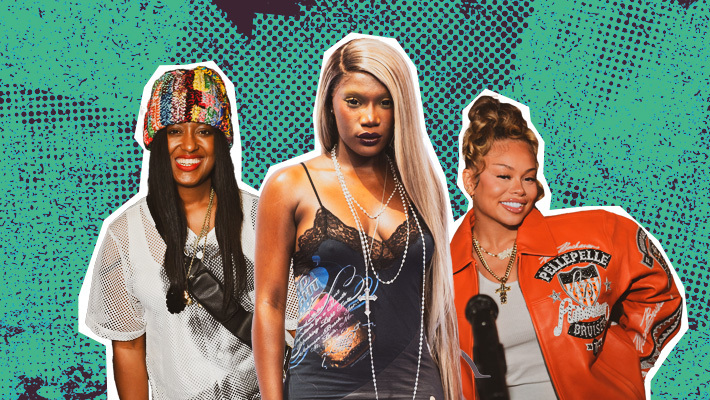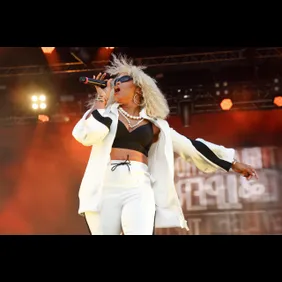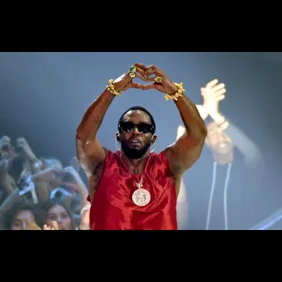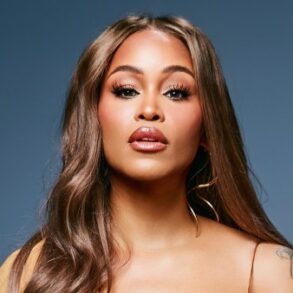
The release of Doechii’s debut mixtape Alligator Bites Never Heal has cemented the ascent of a brand-new rap superstar. Unfortunately, it also resurrected a tired, misogynistic conversation among rap fans – one that seems to resurface every time a new woman in rap asserts herself with a lyrics-forward project or a virtuoso demonstration of wordplay.
Ironically, it’s often the most enthusiastic fans of the new kid on the block who resuscitate the decrepit discourse that pits women in rap against one another. In their rush to praise an exciting young talent, they often end up downplaying the past accomplishments of dozens of artists in the sisterhood of hip-hop and denigrating the efforts of their newfound faves’ contemporaries and peers.
But don’t get it twisted; women have always been rapping — and if you think otherwise, you haven’t been listening.
Alligator Bites Never Heal rightly has fans uplifting Doechii’s rap skills. All across social media over the weekend, rap fans have extolled the Florida rapper’s delivery and gift for wordplay. Songs like “Bullfrog,” “Boiled Peanuts,” and “Denial Is A River,” have fans proclaiming that Doechii’s project isn’t just a stellar debut worthy of Doechii’s label, but is also one of, if not the best rap projects of the year.
However, as they’ve become more profuse with their praise for Doechii, some have become dismissive of her contemporaries. In one example, a fan wrote, “It’s time we celebrate the females in hip-hop who actually can RAP RAP and not the others.” Another wrote, “Doechii is an example of what REAL female hip hop should sound like.”
What these posters and others are really saying is evident in what they’re NOT saying. What “female hip-hop” should be, to coin a popular phrase, is demure, buttoned up, chaste — the opposite of the “others” who “can’t” RAP RAP. By the way, what a horrid way to segregate women and suggest that such classification is also somehow inferior to “default” hip-hop, which, per this phrasing, means “men.”
It’s no secret that the success of sex-positive rappers — like GloRilla, Latto, Megan Thee Stallion, or Sexyy Red (all of whom have released projects this year) — bothers lots of men. These women don’t submit to social standards based on men’s preferences; they encourage women to get their own or turn the tables on men seeking transactional relationships. They turn the male gaze against itself. “If you want some of this,” they say, “You’re going to pay for it.”
Here’s the thing, though. It’s not just them. Rappers like Lola Brooke, Rapsody, and Tierra Whack have also released projects this year preaching self-determination. Please Don’t Cry, Rapsody’s fourth album, foregrounded the North Carolina rapper’s learnings from therapy; Tierra Whack’s World Wide Whack addressed the survivor’s guilt of fame. They all embraced wordplay and delivery and breath control and performance — as did projects from Baby Tate, Flo Milli, and more.
Criticizing rappers like Glo, Latto, and Meg for “sexy” content, only to ignore the “thoughtful” releases from Brooke, Rap, and Whack proves that it’s not about the “right” kind of hip-hop for those fans who do so — it’s about putting women down. It’s about proving them inferior to male rappers — all of whom rap about the same stuff, just from a male perspective — by moving the goalposts.
The sad part is that women have been dealing with this since hip-hop’s inception. MC Lyte — who has a new album coming out this month, by the way — was criticized for being too masculine, but contemporary group Salt N’ Pepa were equally criticized for sexual content. Lil Kim and Foxy Brown were derided for raunchy raps, but Missy Elliott was demeaned for not conforming to beauty standards. Eve, Da Brat, and Trina all fell somewhere along the spectrum, earning attention and album sales for their skills, only to be forgotten anytime the opportunity arose to frame women in rap as one of two dichotomous “types” that were both somehow unappealing.
Those who complain about the “style” of the Cardi Bs and Meg Thee Stallions against the “substance” of Rapsody and Doechii, ironically spend way too much time focusing on the style and overlooking the substance of all of them. These women don’t fit neatly into boxes; Rapsody and Doechii both rap extensively about sex and Doechii’s worn her fair share of risqué fits — including nothing at all in one music video.
Meanwhile, songs like Latto’s “S/O To Me” or Meg’s “Hiss” prove the versatility of women who lead with their looks. While it’s great that so many people are catching onto the talent displayed by Doechii, that talent isn’t as isolated or singular as some have made it out to be. There are plenty of women rapping with plenty to say, and a wide array of ways to say it. There always have been, and there’s more than enough credit to go around.








